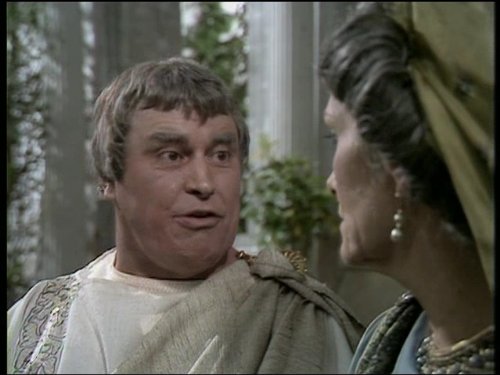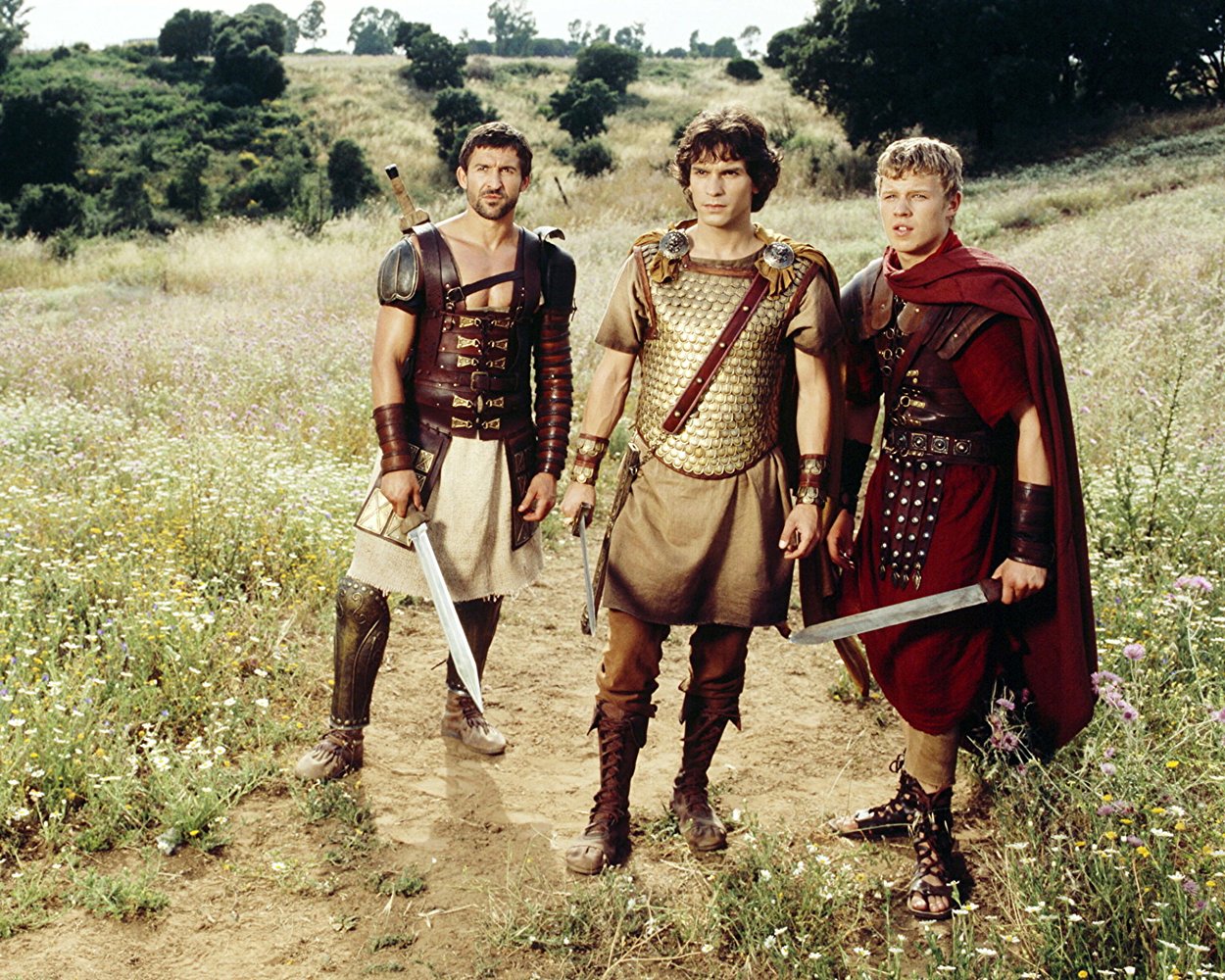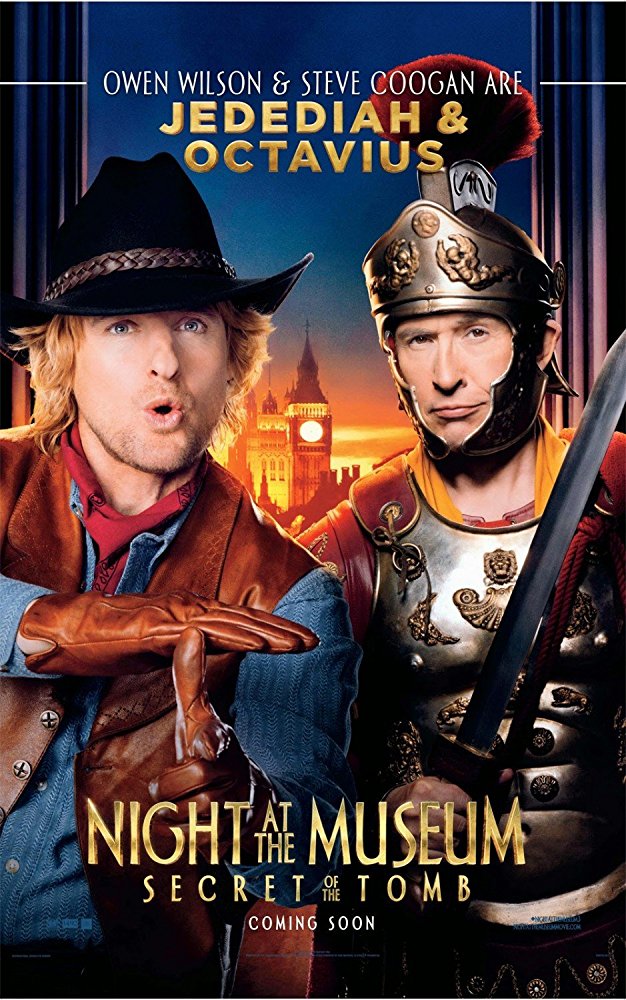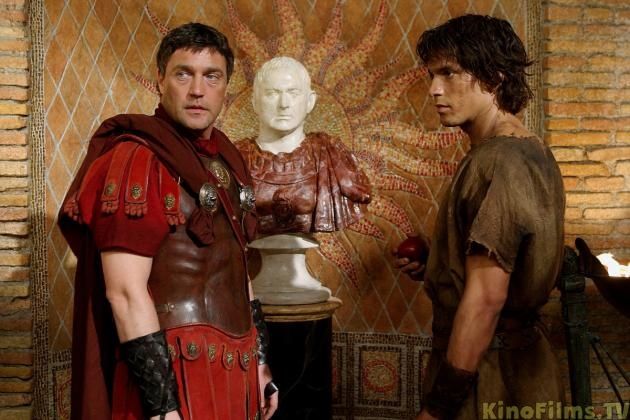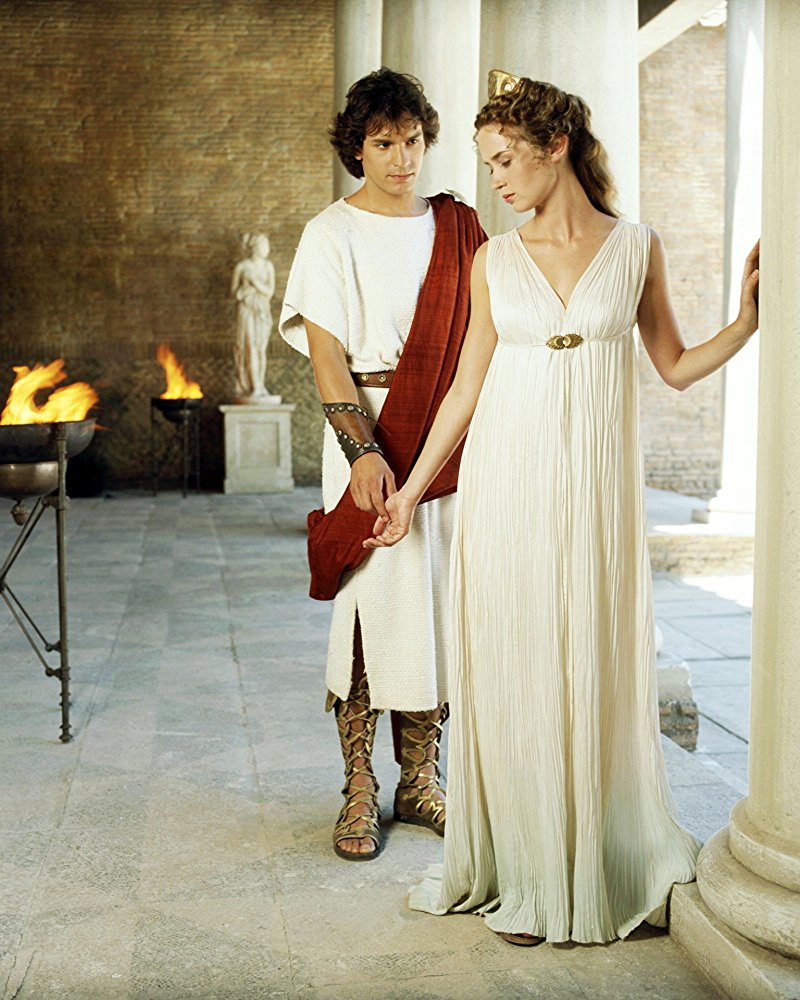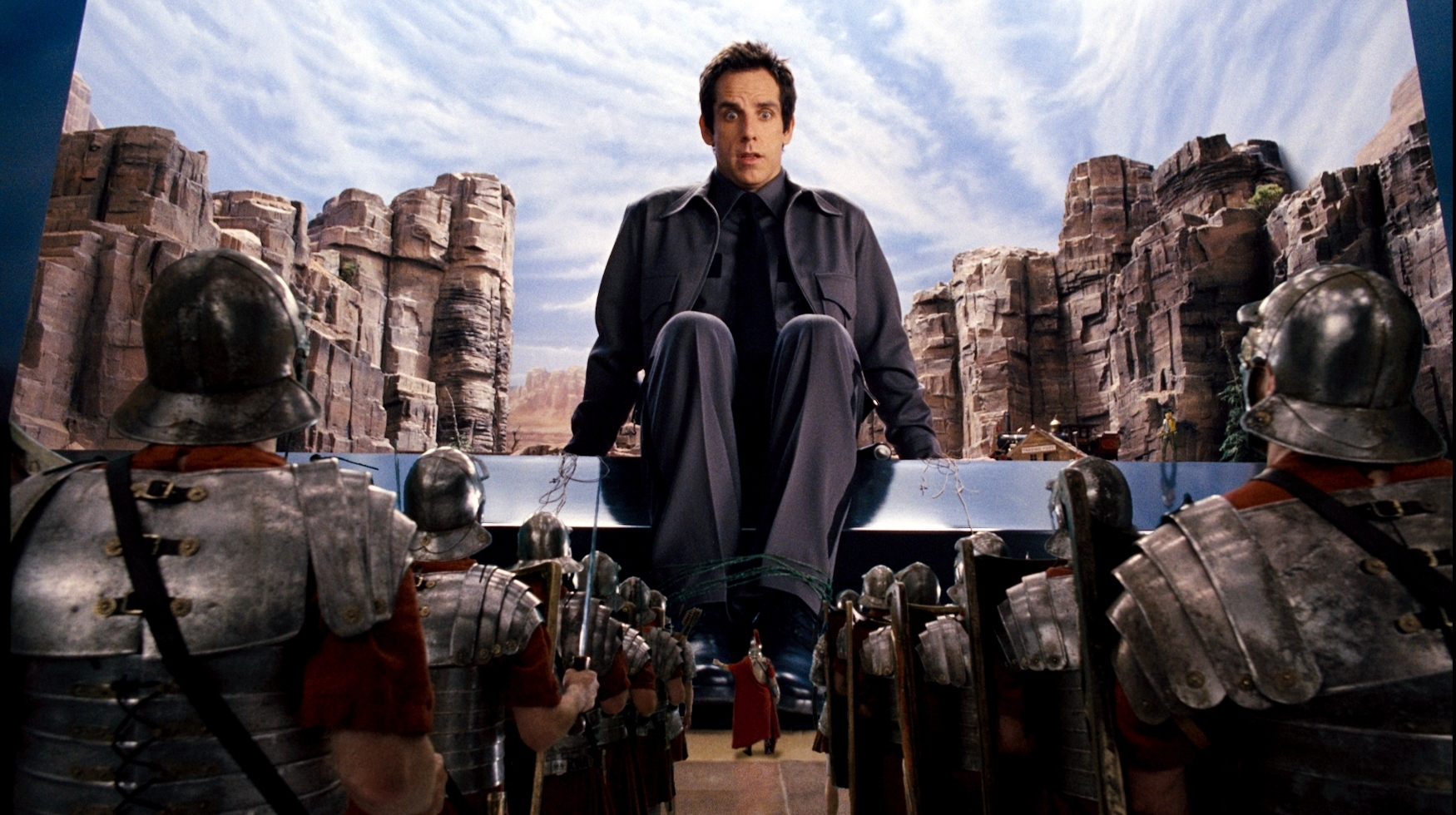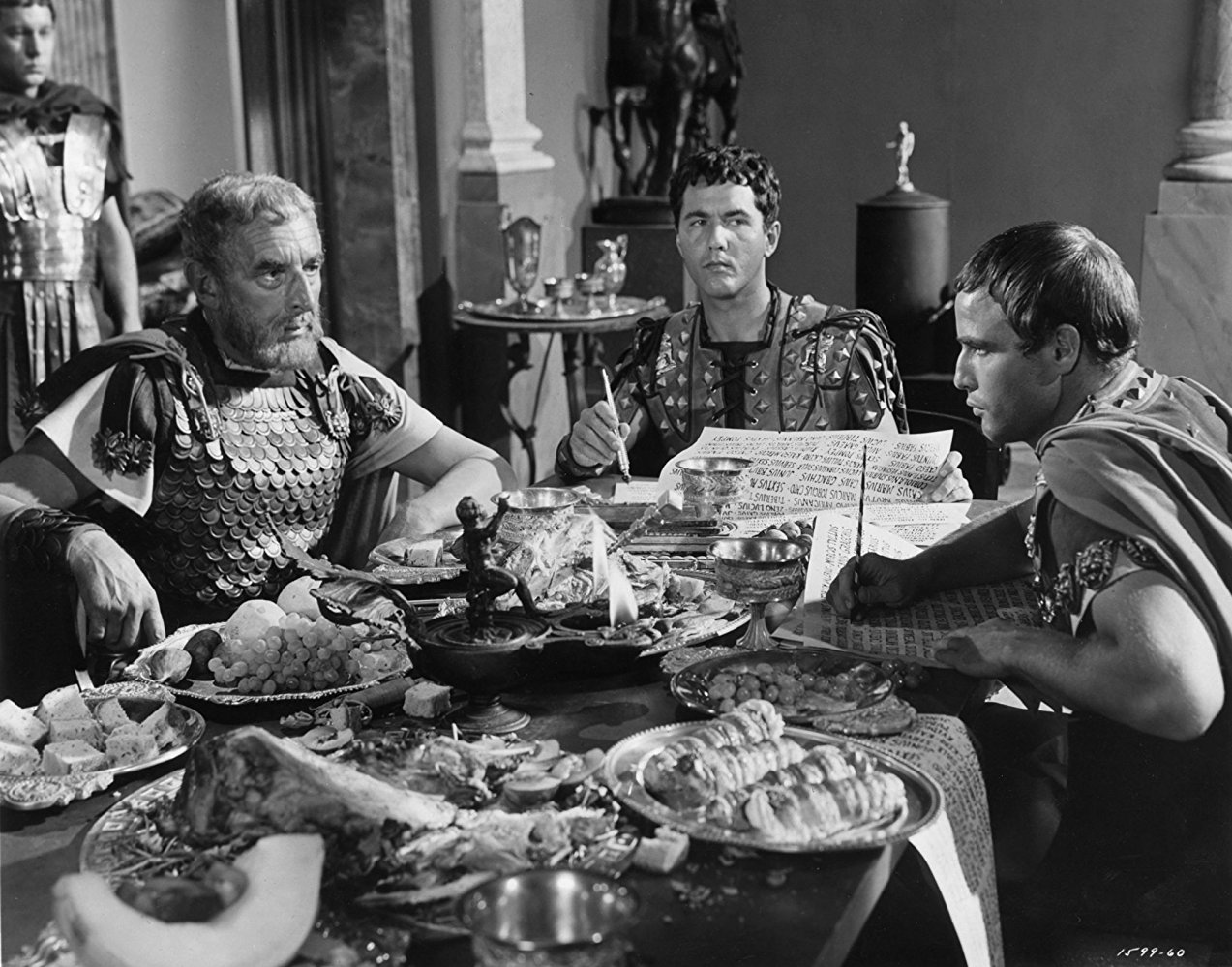Augustus was born Gaius Octavius Thurinus in 63 BC. He was the grand-nephew of Julius Caesar, and upon Caesar's death in 44 BC, his will was read, in which he had adopted his 19-year-old grand-nephew and left to him his entire estate. Octavius sided with his uncle/father's trusted companion Marcus Antonius, and fought a campaign against t...
Show more »
Augustus was born Gaius Octavius Thurinus in 63 BC. He was the grand-nephew of Julius Caesar, and upon Caesar's death in 44 BC, his will was read, in which he had adopted his 19-year-old grand-nephew and left to him his entire estate. Octavius sided with his uncle/father's trusted companion Marcus Antonius, and fought a campaign against the assassins of Caesar, culminating in the Battle of Philippi in 42 BC, during which the Caesarian forces gained a victory, and the opposing commanders (Brutus and Cassius) both committed suicide.Following this war, the victors establish what is known as the Second Triumvirate, in which the empire was to be ruled jointly by the three men who had shared command of the winning army: Octavius Caesar, Marcus Antonius, and Lepidus. Lepidus took the west, Octavius got the middle, and Antony got the exceedingly lucrative east. Lepidus made a futile attempt to lead an army against Octavius, but by being both a blood relative and the adopted son of their beloved Caesar, the troops refused to attack Octavius, and Lepidus' entire army defected to Octavius. Lepidus was forced to flee from the empire.Antony married Cleopatra, and cut off the grain supplies to Rome (which were essential, as the Italian peninsula was incapable at that time of feeding itself, and Egypt acted as the bread-basket of the Mediterranean ). It was a ploy to make Octavius unpopular amongst Romans, knowing that they considered Antony to be a great hero, and would not believe it was his fault, they would blame Octavius for withholding the supplies. Octavius' response was to avoid declaring war on the people's hero, but instead blame Cleopatra, the eastern despot, and declare that Rome must rescue Antony from this foreign witch (knowing full well, that Antony would side with her in a battle). They two sides met, and Antony and Cleopatra's army was decisively defeated at the naval Battle of Actium in 31 BC. Antony and Cleopatra escaped the battle, but both committed suicide shortly afterward.Octavius claimed Egypt for himself as a spoil of the war and as his personal possession, rather than as a new province or client kingdom. This gave him not only the allegience of the entire Roman military (who now swore loyalty to him rather than to the state), but it also gave him the most lucrative possession in the known world. His own personal income was greater than the entire annual revenue of the Roman Empire. These facts combined made him incomparably powerful, but he showed a modest restraint that his grand-uncle Caesar had not (and for which he was assassinated). Octavius at this point adopted the name Augustus (for which he is better known to posterity), but he never took the title dictator as Caesar had. The only title he ever took for himself was princeps which essentially means first citizen. Although he could move the senate and the entire empire with a word, he aknowledged the sensibilities of Romans, who hated the idea of a monarchy. Although Augustus was the first emperor of Rome, he cleverly managed to avoid looking like one to most of his contemporaries.Augustus built many new aqueducts and other public works during his 45-year reign, and is said to have found a city of brick and left one of marble (all the great structures associated with the Romans come from the reign of Augustus or later). He ushered in an era of such peace and stability that the time from the conclusion of the Battle of Actium in 31 BC until the death of Marcus Aurelius in AD 180 that it is referred to as the Pax Romana (Roman Peace). During the rest of his life, Augustus witnessed a series of family tragedies that left him without a clear successor. After naming several, all of whom predeceased him, he was ultimately forced to name his adopted son Tiberius as his successor.Augustus died in AD 14 of illness and old age. His last words are said to have been, Have I played the part well? Then applaud as I exit.
Show less «

